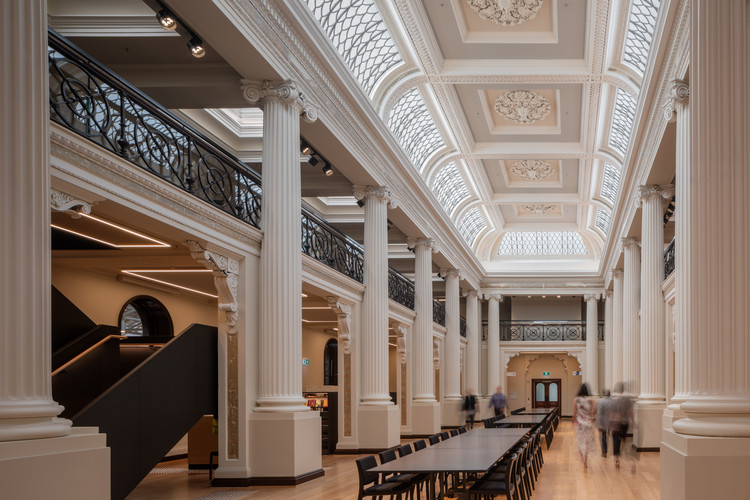
-
Architects: Architectus, Schmidt Hammer Lassen Architects
- Area: 13532 m²
- Year: 2019
-
Photographs:Trevor Mein
-
Manufacturers: Twentinox

Text description provided by the architects. State Library Victoria, a historic Australian landmark, has officially reopened its doors to the public, revealing extensively transformed library spaces designed by Danish architectural firm Schmidt Hammer Lassen Architects and Australian architecture and design studio Architectus. The library comprises 23 individual buildings and occupies an entire city block in Melbourne’s city centre.

















